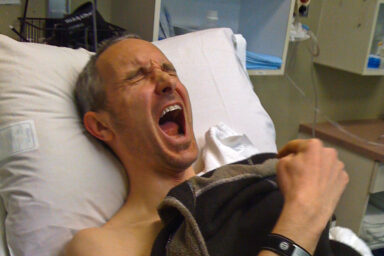Earth Is Still Sailing Into Climate Chaos, but Its Course Could Shift
Poor Nations to Miss Out on Inoculation as West Buys Up COVID Vaccines ; The Tiny Parasitic Wasp That Saved an Industry ; and More Picks 12/10
9 Out of 10 in Poor Nations to Miss Out on Inoculation as West Buys Up COVID Vaccines (Dana)
The author writes, “Nine out of 10 people in 70 low-income countries are unlikely to be vaccinated against Covid-19 next year because the majority of the most promising vaccines coming on-stream have been bought up by the west, campaigners have said. As the first people get vaccinated in the UK, the People’s Vaccine Alliance is warning that the deals done by rich countries’ governments will leave the poor at the mercy of the rampaging virus. Rich countries with 14% of the world’s population have secured 53% of the most promising vaccines.”
Nonprofit Hospital Almost Never Gave Discounts to Poor Patients (Reader Steve)
The author writes, “Memphis’ largest health care system almost never gave patients discounts based on their income even as it pursued thousands for overdue bills in the last several years, according to new information released [last] week. Since 2014, Methodist Le Bonheur Healthcare, a nonprofit, collected just over $169 million from more than 977,000 patients with bills at least 30 days past due, but only 1% of those received financial assistance during the collections process, the hospital reported in a lengthy response to a query from Sen. Charles Grassley, R-Iowa, who chairs the Senate Finance Committee.”
Freemasons Say They’re Needed Now More Than Ever. So Why Are Their Ranks Dwindling? (Dana)
From NPR: “Freemasons have long wielded the qualities most irresistible to thriller writers and conspiracy theorists — secrecy, politics, power and celebrity. Among their members are Founding Fathers, presidents, musicians, artists and businessmen. But today, as membership plummets within one of the oldest international fraternal organizations ever to exist, a new question persists: What is the point? … While part of the problem is that Americans simply don’t join clubs or fraternities as often as they used to, some critics argue that Masons have also struggled to keep up with the changing face of the nation. Many lodges still don’t allow women to join, and others have struggled to attract members of color. In recent years, membership has dropped roughly 75% from a high of more than 4.1 million in 1959 — when about 4.5% of all American men were members.”
The Tiny Parasitic Wasp That Saved an Industry (Mili)
The author writes, “When cassava was first imported to South East Asia from South America (as it was to Africa a few decades earlier), it was able to grow without the help of pesticides. Then in 2008, the cassava mealybug followed the root vegetable to the region and began devastating the crops. … The solution was to find the mealybug’s natural enemy, a 1mm-long parasitic wasp (Anagyrus lopezi), in its native South America. This wasp is extremely selective about using the cassava mealybug as a host for its larvae. By late 2009 it had been introduced to the cassava cropland in Thailand and had started working its way through the mealybugs.”
A Penn Professor Designed Lab-Grown ‘Human Steaks’ as Satire (Dan)
From the Philadelphia Inquirer: “Orkan Telhan, associate professor of fine arts at Penn’s Weitzman School of Design, is not actually promoting cannibalism. … Telhan’s work, dubbed Ouroboros Steak, was commissioned by the Art Museum and … consists of an elegant dinner setting with small pieces of meat-protein grown from human cells. … [It] was created from human cells harvested from the mouth, via cotton swab, and expired blood about to be discarded by a blood bank.”



